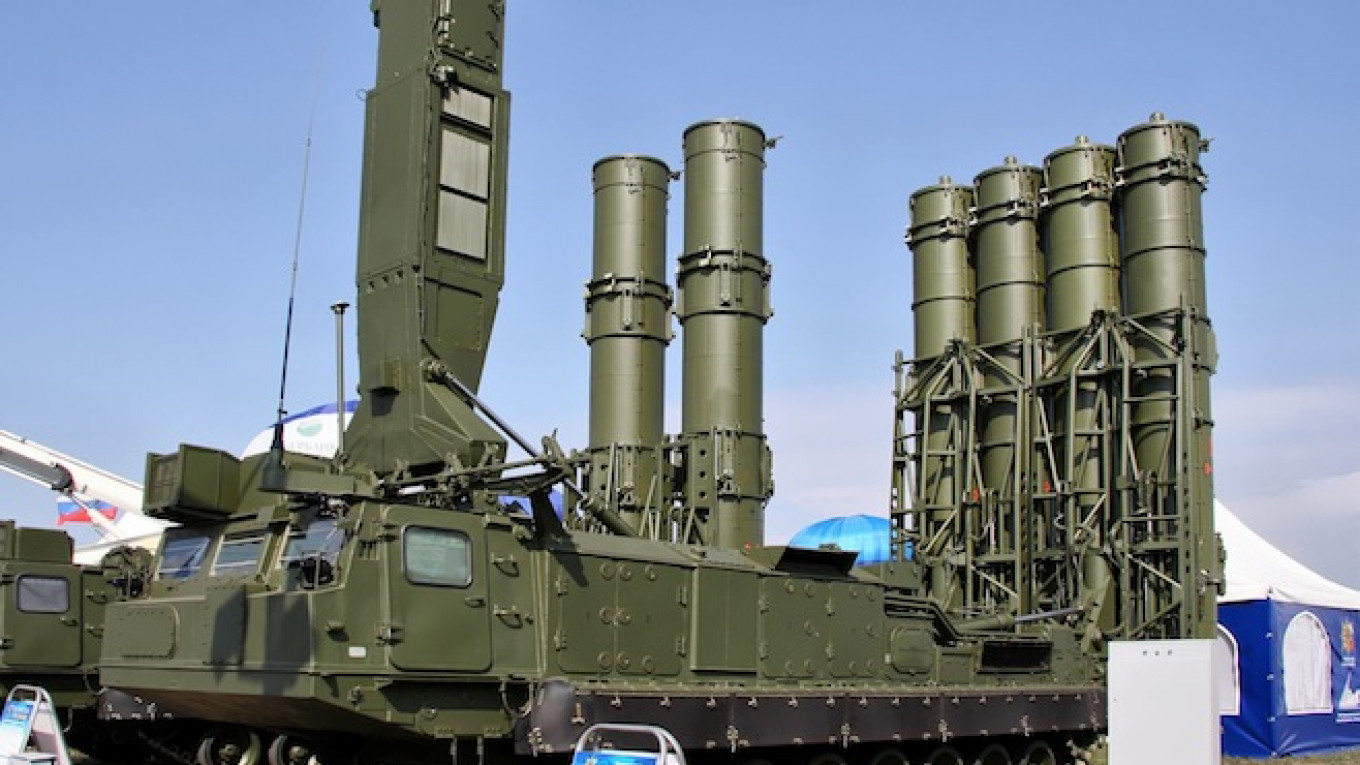Russia could sell Iran advanced Almaz-2500 anti-aircraft missile systems after Tehran withdraws a lawsuit against Moscow for canceling a previous weapons delivery, newspaper Kommersant reported Monday citing an unidentified Kremlin source.
Such a sale would increase Iran's ability to repel air attacks and — critics say — protect any nuclear facilities that they are deployed to protect.
Iran purchased five S-300 air defense systems in 2007, but then-President Dmitry Medvedev froze the delivery three years later as a sign of good will toward the West amid negotiations on Iran's nuclear program.
But with Russia's relationship with the West on the rocks over Ukraine, Moscow and Tehran are revisiting the sale.
After negotiations yielded a preliminary deal on Iran's nuclear program in April, Russian President Vladimir Putin lifted Medvedev's ban on selling the weapons to Tehran, signaling that a delivery may be imminent. However, an obstacle remains: a $4 billion lawsuit filed by Iran against Russian state arms export agency Rosobornexport for violating the 2007 contract.
Progress is being made to resolve the issue, Iranian Deputy Foreign Minister Morteza Sarmadi told Russian news agency Sputnik on Sunday. In recent negotiations the two sides discussed amendments to the 2007 contract and mechanisms for lifting the lawsuit, he said.
“The termination of these proceedings will be the first step toward implementing the transaction, this is fundamental”, Kommersant quoted an unidentified Kremlin official as saying.
The two sides are also discussing new prices for the anti-air missiles, Sarmadi told Sputnik.
According to the Kommersant report, the S-300 units that Tehran purchased in 2007 have since gone out of production, and in February the head of state defense technology holding Rostec, Sergei Chemezov, offered up the more advanced Almaz-2500 systems instead.
A Message from The Moscow Times:
Dear readers,
We are facing unprecedented challenges. Russia's Prosecutor General's Office has designated The Moscow Times as an "undesirable" organization, criminalizing our work and putting our staff at risk of prosecution. This follows our earlier unjust labeling as a "foreign agent."
These actions are direct attempts to silence independent journalism in Russia. The authorities claim our work "discredits the decisions of the Russian leadership." We see things differently: we strive to provide accurate, unbiased reporting on Russia.
We, the journalists of The Moscow Times, refuse to be silenced. But to continue our work, we need your help.
Your support, no matter how small, makes a world of difference. If you can, please support us monthly starting from just $2. It's quick to set up, and every contribution makes a significant impact.
By supporting The Moscow Times, you're defending open, independent journalism in the face of repression. Thank you for standing with us.
Remind me later.


